
The Women's Social and Political Union (WSPU) was a women-only political movement and leading militant organisation campaigning for women's suffrage in the United Kingdom founded in 1903. Known from 1906 as the suffragettes, its membership and policies were tightly controlled by Emmeline Pankhurst and her daughters Christabel and Sylvia. Sylvia was eventually expelled.
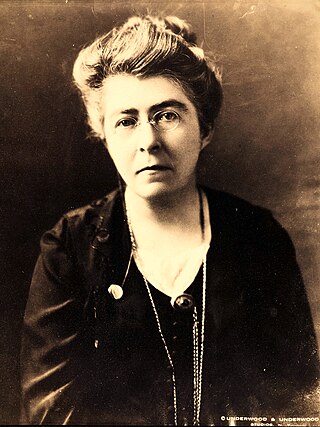
Johanna Mary Sheehy-Skeffington was a suffragette and Irish nationalist. Along with her husband Francis Sheehy-Skeffington, Margaret Cousins and James Cousins, she founded the Irish Women's Franchise League in 1908 with the aim of obtaining women's voting rights. She was later a founding member of the Irish Women Workers' Union. Her son Owen Sheehy-Skeffington became a politician and Irish senator.
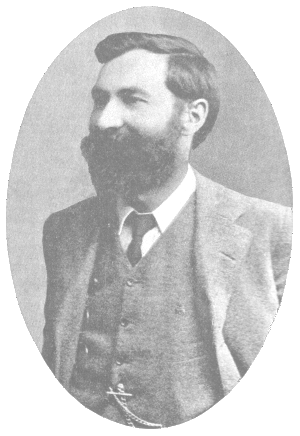
Francis Joseph Christopher Skeffington was an Irish writer and radical activist, known also by the nickname "Skeffy". He was a friend and schoolmate of James Joyce, Oliver St. John Gogarty, Tom Kettle, and Frank O'Brien. When he married Hanna Sheehy in 1903, he adopted her surname as part of his own, resulting in the name "Sheehy Skeffington". They always spelled their joined names unhyphenated, although many sources add the hyphen.
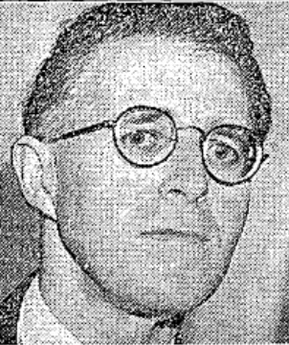
Owen Lancelot Sheehy-Skeffington was an Irish university lecturer and senator. The son of pacifists, feminists and socialists Francis and Hanna Sheehy-Skeffington, he was politically likeminded and as a member of the Irish Senate was praised as a defender of civil liberty, democracy, separation of church and state, freedom of speech, women's rights, minority rights and many other liberal values.

Charlotte Despard was an Anglo-Irish suffragist, socialist, pacifist, Sinn Féin activist, and novelist. She was a founding member of the Women's Freedom League, the Women's Peace Crusade, and the Irish Women's Franchise League, and an activist in a wide range of political organizations over the course of her life, including among others the Women's Social and Political Union, Humanitarian League, Labour Party, Cumann na mBan, and the Communist Party of Great Britain.
Louie Bennett was an Irish suffragette, trade unionist, journalist and writer. Born and raised in Dublin, she established the Irish Women's Suffrage Federation in 1911. She was a joint editor and contributor to the Irish Citizen newspaper. She wrote two books, The Proving of Priscilla (1902) and A Prisoner of His Word (1908), and continued to contribute to newspapers as a freelance journalist. She played a significant role in the Irish Women Workers' Union, and was the first woman president of the Irish Trade Union Congress.

Margaret Elizabeth Cousins was an Irish-Indian educationist, suffragist and Theosophist, who established All India Women's Conference (AIWC) in 1927. She was the wife of poet and literary critic James Cousins, with whom she moved to India in 1915. She is credited with preserving the tune of the Indian National Anthem Jana Gana Mana based on the notes provided by Tagore himself in February 1919, during Rabindranath Tagore's visit to the Madanapalle College. She was a member of the Flag Presentation Committee which presented the National Flag to the Constituent Assembly on 14 August 1947.
The Irish Women's Suffrage Society was an organisation for women's suffrage, founded by Isabella Tod as the North of Ireland Women's Suffrage Society in 1872. Determined lobbying by the Society ensured the 1887 Act creating a new city-status municipal franchise for Belfast conferred the vote on persons rather than men. This was eleven years before women elsewhere Ireland gained the vote in local government elections.
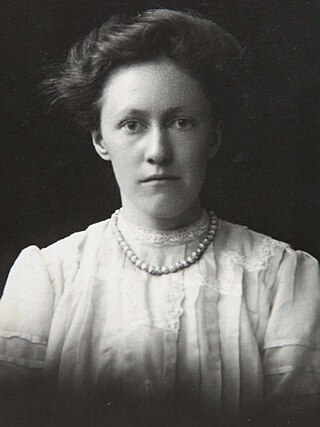
Rosamond Jacob was an Irish writer and political activist. She was a lifelong activist for suffragist, republican and socialist causes and a writer of fiction.
The Irish Citizen was founded in 1912 as the newspaper by the Irish Women's Franchise League. Its first editors were Francis Sheehy-Skeffington the writer, pacifist and suffragist, and James H. Cousins who were associate members of the IWFL. Their wives Hanna Sheehy-Skeffington and Margaret Cousins had founded the IWFL in 1908 and both contributed to the newspaper. After Francis was killed in the Easter Rising, Hanna took over as editor.

Cissie Cahalan was an Irish trade unionist, feminist, and suffragette.

Marjorie Hasler was an Irish suffragette, deemed to be "the first Irish martyr for the suffragette cause".

Rosalind Mary Garcias de Cadiz and Leila Gertrude Garcias de Cadiz, known as the Cadiz sisters, were two sisters notable for their militant involvement in the Suffragette movement in Ireland. They went by the names Jane Murphy and Margaret (Maggie) Murphy during their militancy.
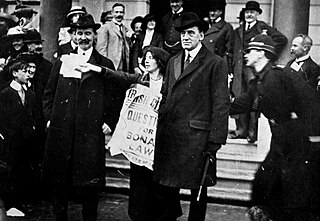
Meg Connery (1881–1956), was an Irish suffragist organiser and activist.

Mary Bourke-Dowling was an Irish suffragette and republican.

Lillian Margaret Metge was an Anglo-Irish suffragette and women's rights campaigner. She founded the Lisburn Suffrage Society, which she left to become a militant activist, leading on an explosion at the Anglican Lisburn Cathedral in Ireland. She was imprisoned briefly, and awarded a Women's Social and Political Union Hunger Strike medal. She continued her campaign, albeit peacefully, during and after World War I.

Elizabeth "Lisbeth" Anne Maud McCracken, was a women's suffragist and—under her maiden name L.A.M. Priestley—a feminist writer, active in the north of Ireland. Although unionist herself, with other members of the Belfast Irish Women's Suffrage Society she joined the Women's Social and Political Union in declaring a direct-action campaign against Ulster Unionists for their refusal in 1914 to honour a votes-for-women pledge. After the First World War and the achievement of the vote, she continued in what was now Northern Ireland to campaign on issues of domestic violence and sex discrimination.
Patricia Hoey was an Irish journalist, suffragist and nationalist.
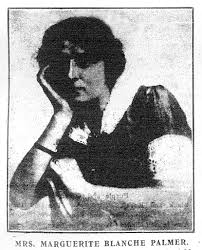
Marguerite or Margaret Blanche Palmer was an Irish suffragette and was among the first group of suffragettes imprisoned in Ireland, and later known as one of the "Tullamore Mice".















